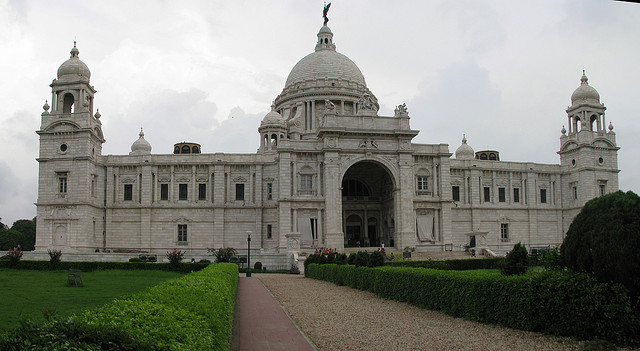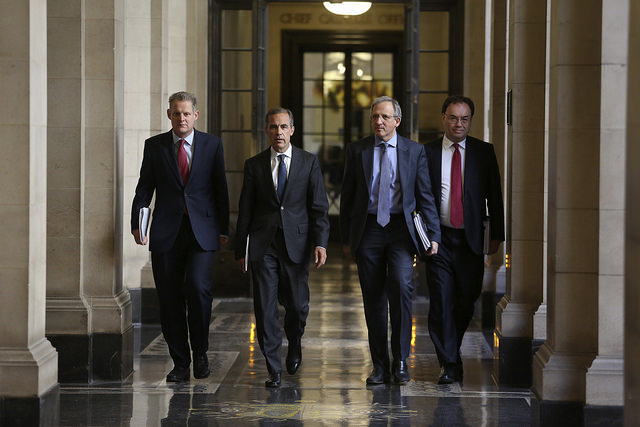The newly elected Indian government recently approved a proposal to increase foreign direct investment (FDI) limits in its insurance market to 49%, from 26%, and parliament has approved it. India’s business-friendly Bharatiya Janata Party (BJP) and new Prime Minister Narendra Modi are sending signals that there is opportunity in India. The country is open for business.
Overcoming cultural barriers and convincing foreign capitals to open their economic borders is a struggle that has plagued proponents of economic globalization for decades. The Council has long advocated for opening foreign markets to allow for more competition, to build economies and to drive down prices for consumers. We know countries with open economic borders see healthier competition and cheaper services for their citizens. But isolationism and nationalism are often synonymous, and overcoming these barriers can take years.
Rep. Joe Crowley, D-N.Y., vice chairman of the House Democratic Caucus and chair of the Congressional Caucus on India and Indian Americans, for years has championed India relaxing its limits on foreign direct investment.
“Raising the cap [is] a win for both the Indian and American economies and our citizens,” he says. “I am hopeful of the new changes being pushed by the new Indian prime minister and urge they be fully implemented. I hope it will come to fruition and expand the partnership between our two great countries.”
Victory has a hundred fathers, and this victory has millions. The Indian election in May had the highest voter turnout in the young democracy’s history, with more than 550 million votes cast. The election broke records in terms of dollars spent campaigning, and it included high-tech hologram campaign stints, which might now be in the future for U.S. campaigns.
In India’s case, the proposal to increase the FDI caps to 49% had been on the table for six years. Political backlash in the Indian parliament kept the issue from gaining momentum. But this time is different. We would like to say it’s because of the Council’s efforts. We’ve advocated, alongside our global counterparts, for increasing the current cap for insurance intermediaries, and our friends at the World Federation of Insurance Intermediaries have underscored the issue for European FTA negotiators as they work on an economic agreement with India.
This work has certainly helped put the issue on the BJP’s agenda, but it was the past election, which swept the BJP to power, that brought it to a head. The BJP’s win over India’s Congress party is akin to the Republican revolution in 1994 in the U.S., when the GOP broke the Democrats’ rule of the House of Representatives for the first time in 40 years.
I should note the measure will not be perfect (results of the political process rarely are), but it will be good. Frankly, we would love to see the foreign direct investment limit not just increased but abolished altogether. We also expect the FDI limit to include a stipulation requiring management control of intermediaries and insurers to remain with Indian investors. These are no doubt olive branches to ease the transition.
The take-up rate of both commercial and personal insurance coverage in India is significantly low, given the size of its economy. Measured as a percentage of GDP, penetration in the non-life sector was a staggering 0.78% in 2012. Life coverage was slightly higher, at 3.17%. Considering the Indian economy—the 10th-largest by nominal GDP and the third-largest by purchasing power—there’s a ripe opportunity for market penetration. There’s also convincing policy and political need for the coverage to keep the country’s growth sustainable. I’m again reminded of the adage: “Insurance is like oxygen to the economy.”
The Council wrote the new government to ensure its understanding of our business and the strengths our industry offers the Indian economy. To underscore our value, Council President Ken Crerar wrote: “Insurance intermediaries are distinctly different from insurance companies and do not pose any systemic risk to the insurance sector as a whole. Intermediaries serve the needs of individual and commercial insurance consumers, helping the purchasers of insurance navigate markets that can be extremely complex, particularly for consumers of commercial insurance products.
“Intermediaries not only assist with the purchase of insurance, but also assist consumers with maintenance and claims processes, offering consumers an array of expertise and proficiency in the global market. I would like to highlight the following points as you review the merits of increasing FDI limits:
- Insurance brokers work for the policyholders and help in risk management, maintaining market efficiencies and protecting consumers.
- Increasing the exchange of market intellect and expertise on risk management and process efficiency between different countries (and markets) will benefit Indian consumers.
- Most countries across the globe allow 100% foreign direct investment in the insurance intermediary market, strengthening local markets and keeping costs down.
- Strengthening the Indian intermediary market will also encourage international reinsurance to the domestic market, as it eases the exchange of risk and insurance products between countries and markets. This further helps consumers as it increases competition and drives costs down.”
Our message didn’t fall on deaf ears this time. Arun Jaitley, India’s new finance minister, told the upper house of parliament that Indian insurers need help maintaining a healthy capital base so they can offer a wider range of products, protect consumer interests against insolvency and deepen insurance penetration in India.
“The insurance sector is investment-starved,” Jaitley said. “Several segments need an expansion.”
Jaitley predicts India’s private insurance industry needs an estimated $6 billion (Rs360 billion) of additional capital over the next five years.
I’m optimistic India's borders are opening, further increasing its international opportunity and economic strength.








